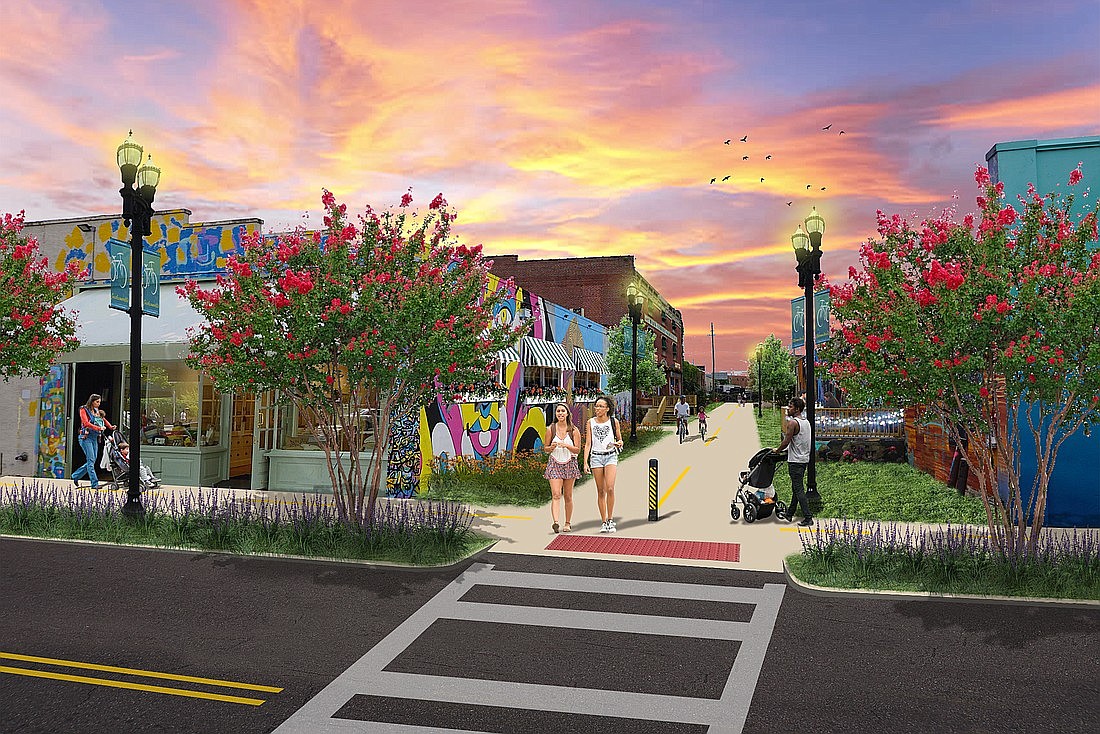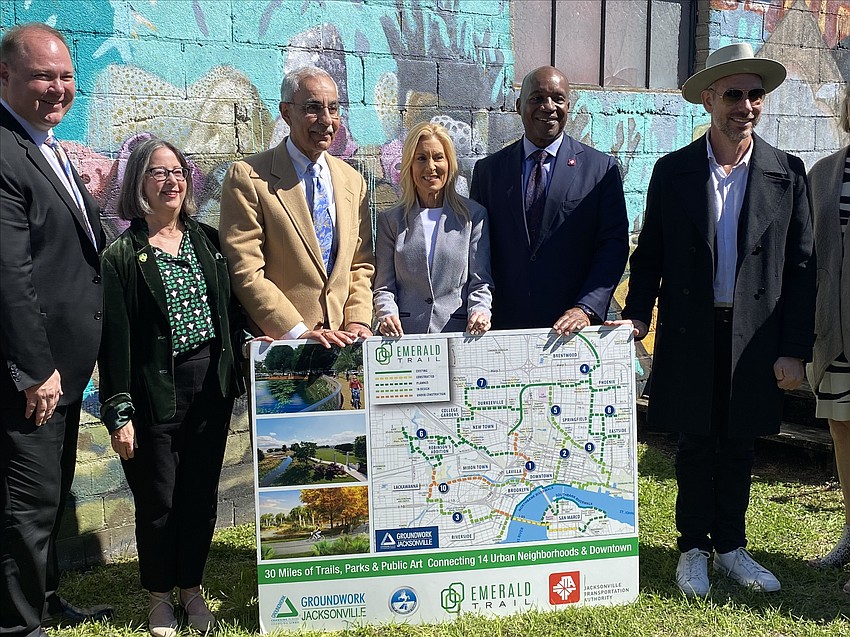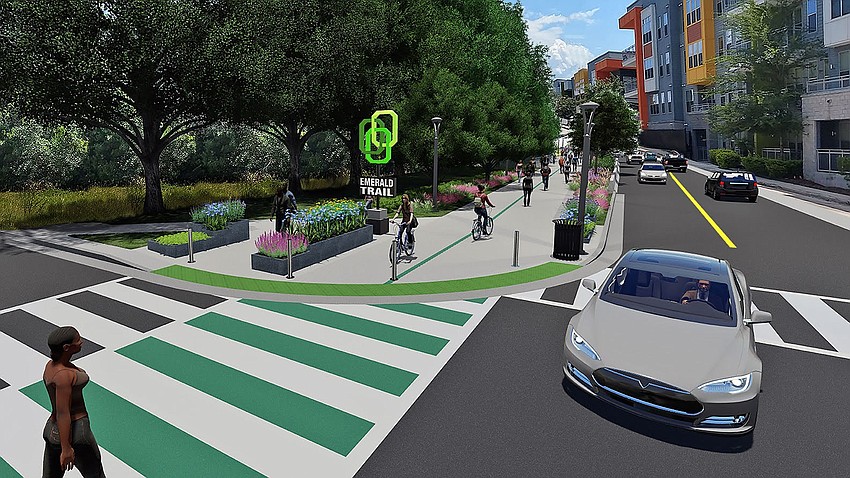
At a March 19 event heralding the recent infusion of $147 million in federal grant money into the Emerald Trail, the principal of the Phoenix Arts & Innovation District offered a vision of how the trail and district could shape the core of Duval County.
Tony Cho, CEO and founder of Miami-based Future of Cities and founding managing partner of PHX JAX, said the trail was one of the main reasons he decided to invest in Jacksonville.
He and his partners are working toward repurposing 10 warehouse spaces across 8.3 acres in the North Springfield neighborhood as creative offices, art studios, small-format retail and restaurants, and more.
The trail, when completed, will link to the Phoenix district on a route along Liberty Street through Springfield. That’s where several dozen people met to hear Mayor Donna Deegan, City Council President Ron Salem, Cho and others celebrate the awarding of the federal grant.

“Half of this district will be green space and will be edible landscape,” said Cho, pointing to a courtyard surrounded by buildings decorated with colorful murals and a mirrored-glass mosaic.
“It will turn a food desert into a food forest, and we’re working with the state to get additional funding to make that happen. We will be a demonstration of equality, inclusion, collaboration and public-private partnership.”
Partnership was a theme of the event, which came six days after the city announced that the U.S. Department of Transportation had awarded Jacksonville funding from its Neighborhood Access & Equity Program Grant program.
The Jacksonville Transportation Authority and Groundwork Jacksonville submitted the application for the grant, which will be used to design and construct five segments of the trail.
Deegan, JTA CEO Nat Ford and Groundwork CEO Kay Ehas advocated for the funding during a trip to Washington, D.C., in November, speaking to government officials and members of the Florida congressional delegation.
The funding was the largest one-time federal grant in the city’s history.

Ford said 132 grants were awarded among 686 applications for the funding, which totaled $3.3 billion. Jacksonville’s application graded out as the sixth-highest, he said.
Deegan said the trail would help boost health and wellness in Jacksonville and provide safer connectivity in neighborhoods to schools and health care facilities. She said the project would also generate economic development along the trail route.
She compared the potential to the 33-mile BeltLine trail system in Atlanta, which has spurred $10 in private development for every $1 in public investment.
“New destinations like the one we’re at today will be along the trail route,” she said.
“Small-business owners (will operate) in coffee shops, restaurants, bike stores and more. Affordable housing will be built nearby. Those investments will build up surrounding neighborhoods in ways that help them grow while preserving their character, their history.”
Ehas said 40% of the trail had been completed, was under construction or was in design.
“A significant commitment already made to the Emerald Trail by the city, Groundwork and private donors to move this project forward so quickly was critical to our grant rising to the top of a very competitive field,” she said.
The grant will be matched by $36.65 million in funds from the local option gas tax, which local city leaders increased by 6 cents in 2021 to fund infrastructure improvements.
Ehas thanked Salem and other Council members in attendance for passing the increase, to which Salem jokingly responded that he was feeling good about the event until being reminded of “the long days and nights” the Council spent debating the gas tax.
Turning serious, Salem said that by investing in the trail, the community was “not only enhancing the quality of life for current generations, but we are also laying the foundation for significant economic improvements and a sustainable and vibrant future.”
Construction on the first link of the trail began in 2021. Officials have aimed for completion in 2030.